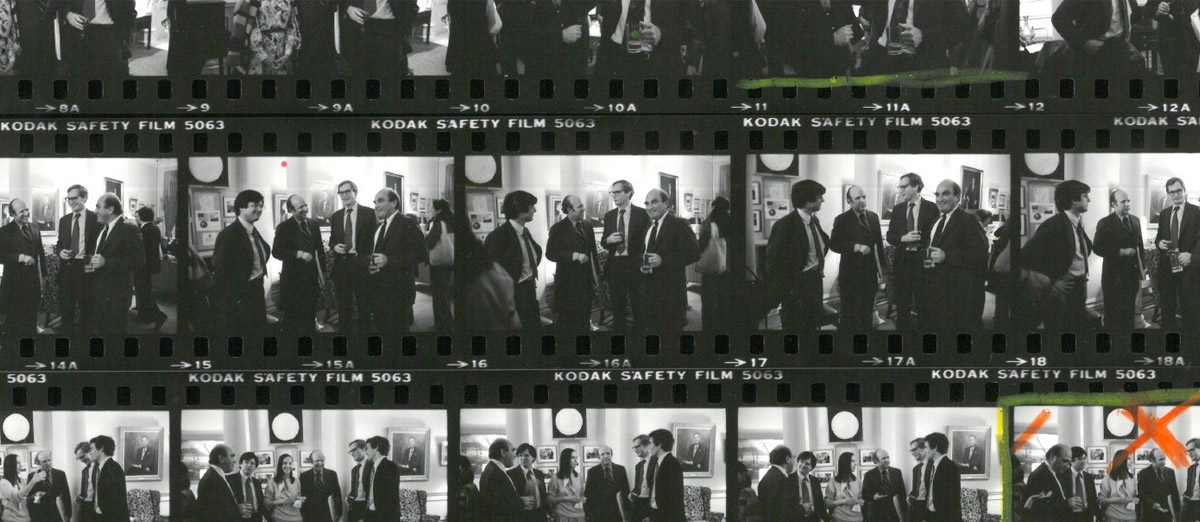
PEN America Digital Archive
Over 50 years of literary cultural programmingVisit website
archive.pen.orgAbout the Archive
The PEN America Digital Archive dates back to 1966, resonating with the voices of literary luminaries; Nobel Prize winners in literature, economics, science, and peace; social reformers; philosophers; and political and artistic revolutionaries whose work, ideas, and actions explored and helped frame the most pressing issues of our time. Composed of more than 1500 hours of audio and video recordings, the collection provides a unique historical perspective on the way Americans and American culture engaged, and at times disengaged, with the outside world during pivotal moments in history: the Cold War, the Civil Rights era, the Vietnam War, the Iranian Cultural Revolution and hostage crisis, the AIDS epidemic, the post-Communist decade, and September 11. Arthur Miller, Susan Sontag, Toni Morrison, James Baldwin, and Allen Ginsberg are just a few of the icons and iconoclasts captured in the PEN America Digital Archive.
services
- Helped to scope features and technical requirements for NEH Grant Application
- Design and UxD
- Collaboration on development of Personas and goals to help develop use cases
- Exploration of search scenarios
- Usability prototyping and alpha testing
- QA and feature iteration of website
Visit website
archive.pen.orgservices
- Helped to scope features and technical requirements for NEH Grant Application
- Design and UxD
- Collaboration on development of Personas and goals to help develop use cases
- Exploration of search scenarios
- Usability prototyping and alpha testing
- QA and feature iteration of website
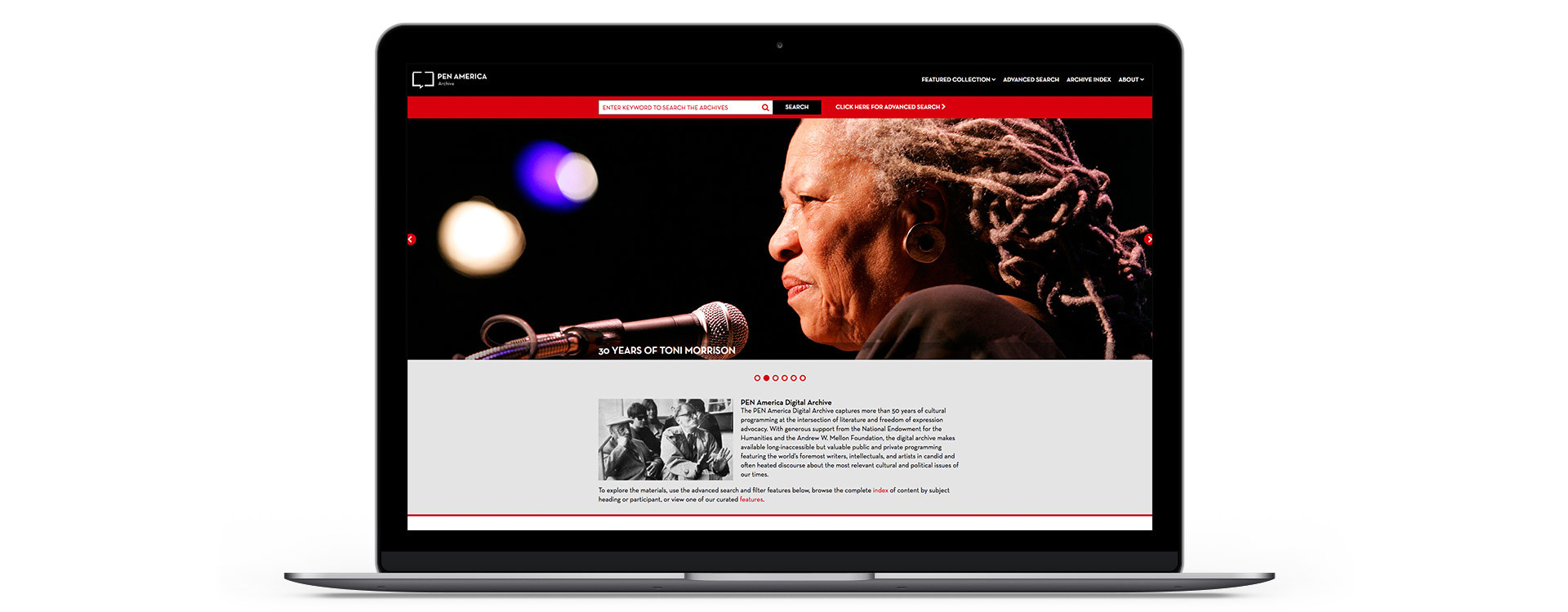
Search First
A major focal point for design consideration was how to expose the breadth of the archive to prompt users into discovery without burying the material under multiple clicks or under complicated search terms and mechanisms. The decision to put search first directly onto the home page for desktop users became a core principle for the project. A set of three search scenarios for users was developed, including Explore/Browse, Related Content, and Advanced/Integrated/Faceted search. Early on in the process, emphasis was placed on the ability to integrate advanced search operability with the notion of serendipitous discovery.
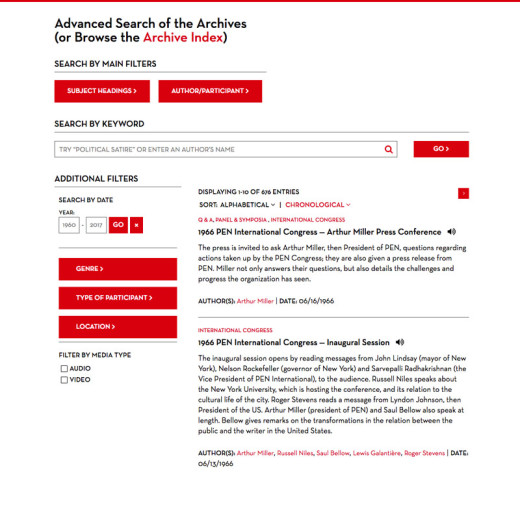
Wireframes
The wireframe process involved in-depth discussions about user experience, information retrieval behavior, and expectations as well as technological and budget allowances. We developed five static, simple mock-ups that focused on how to present content relationships through contextual storytelling that exists, primarily, on the home page. Feedback in the early stages helped to gain insight into how users desire to engage, explore, and experience the content.
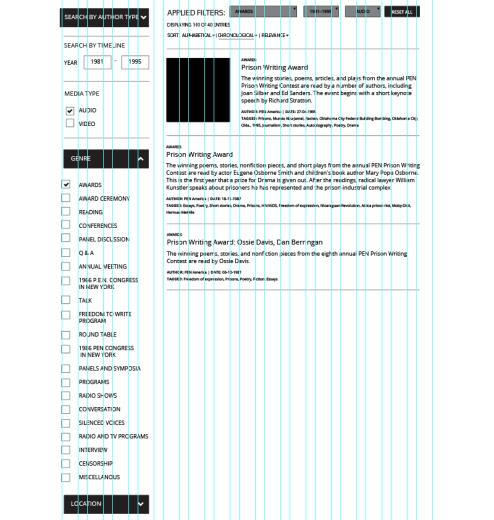
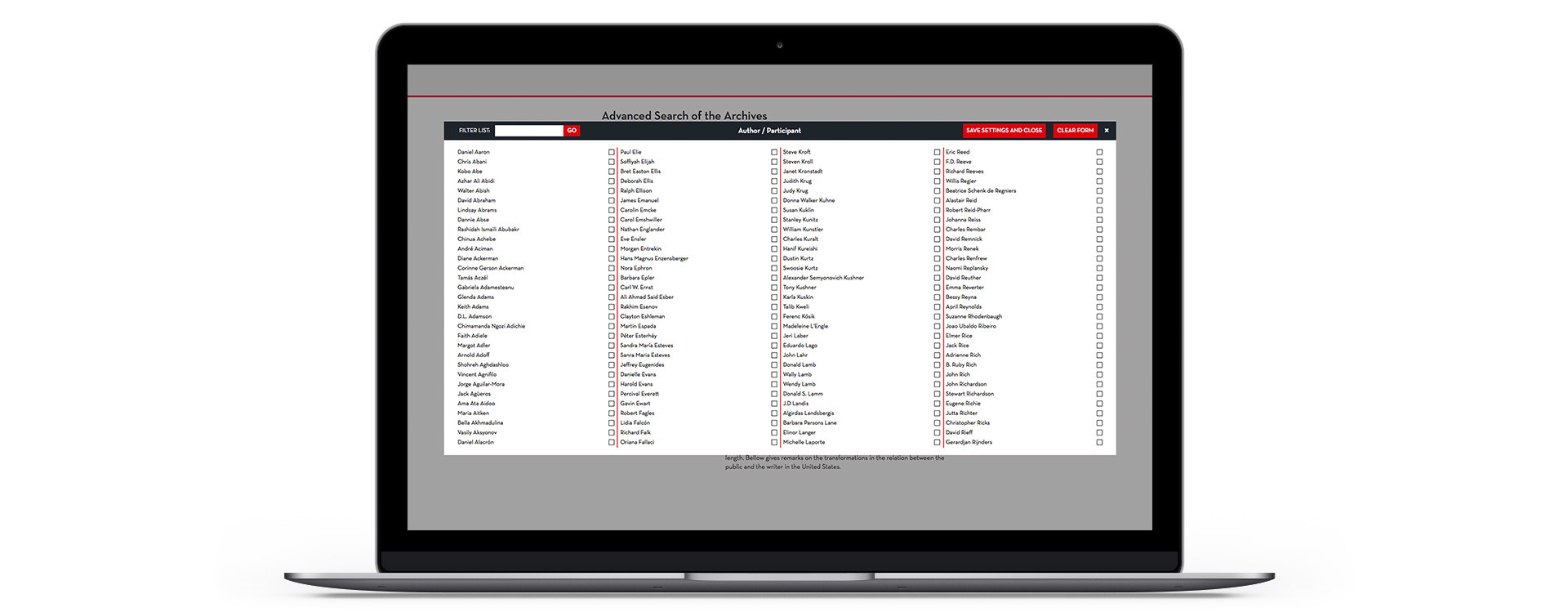
Interactive Prototype
The static wireframes provided the basis for our initial, interactive alpha prototype. This consisted of enough content to simulate search returns and basic functionality. The interactive prototype was an essential component in the design and development of the archive site as it allowed for a comprehensive user experience (UX) evaluation by graduate students at Pratt Institute’s School of Information. The students, under the supervision of Dr. Craig MacDonald, provided qualitative feedback on possible design enhancements that would fulfill discoveries stemming from the UX evaluation.
We are hoping that over time with continued use by the public, more features may be possible including special enhancements for mobile users.

